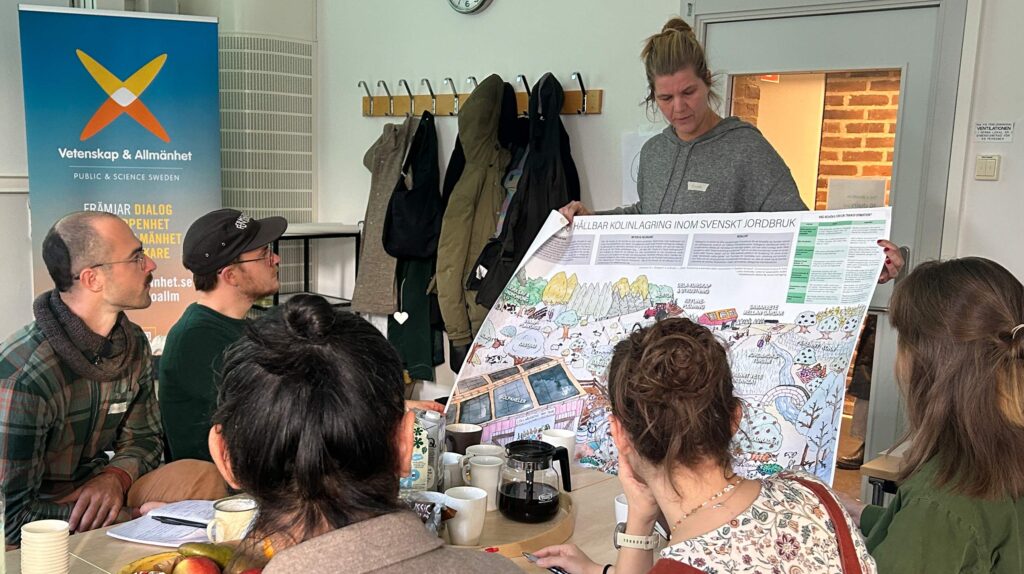What is soil, and how capable is it of storing carbon? These questions were at the heart of a panel discussion and workshop held at Lund University in Sweden on Wednesday 20 November, run as part of the EU LOESS project.

The seminar room was filled to capacity as the live-streamed panel discussion kicked off at Lund University’s Centre for Sustainability Studies on the morning of 20 November. The day’s theme revolved around soil’s ability to capture and store carbon. Contributors included Håkan Wallander, Professor of Soil Biology at Lund University, and Jessica Johansson from Svensk Kolinlagring (Swedish Carbon Storage).
The event started with presentations and transitioned into an open panel discussion and Q&A session with the engaged audience. Topics included soil’s remarkable ability to store carbon over extended periods, highlighting how increased carbon sequestration not only reduces emissions but also enriches soil quality and promotes biodiversity both above and below ground.
Workshop with students
The panel was followed by a collaborative workshop at which students from diverse academic disciplines, guided by Emma Johansson, a researcher at the Centre for Sustainability Studies, explored the competencies required to address future soil-related challenges.
Both the panel discussion and workshop were part of the EU-funded LOESS project, which aims to increase public interest and understanding of the importance of soil health.
This was the first in a series of three panel discussions, each shedding light on different aspects of soil. The insights gathered will inform the development of a university course on soil health.
“Knowledge about the critical ecosystem services provided by soil will be essential across many professions in the future. By involving end-users – namely students – in the creation of educational resources, we hope to better meet these needs,” said Maria Jacobson, Project Manager at Public & Science Sweden.
